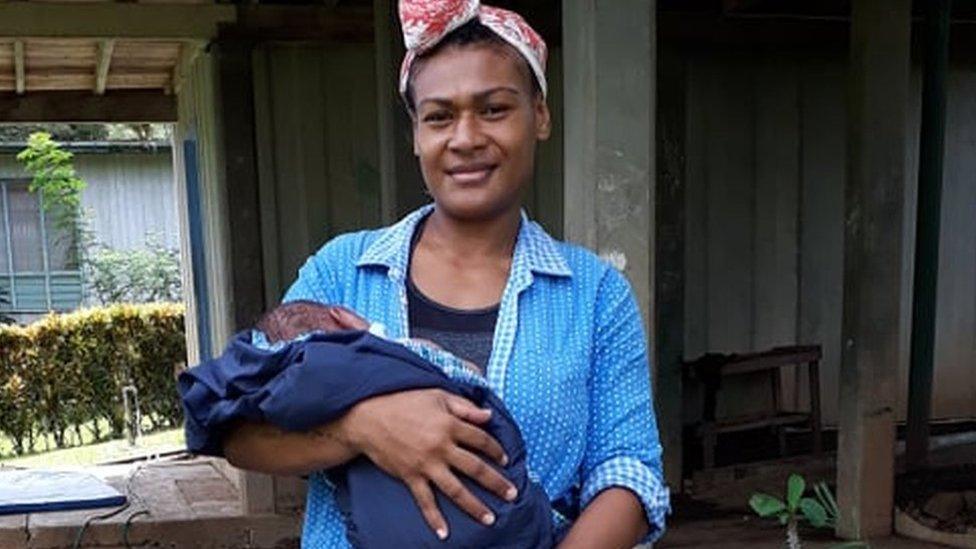The women publicly tortured after being accused of sorcery
- Published
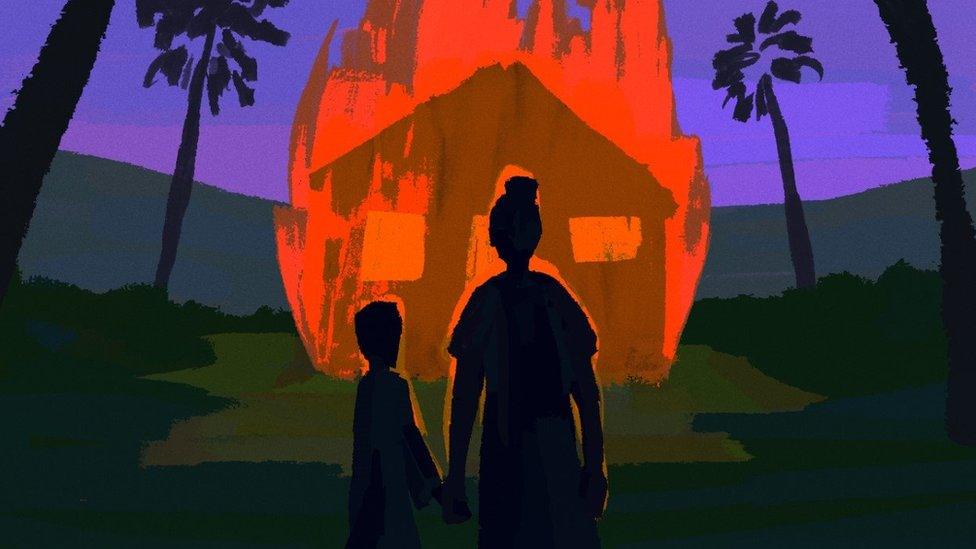
Once an accusation of sorcery is made it can be hard to escape violence
"They screamed in my face, 'You killed him'."
When Monica Paulus' father collapsed and died of a heart attack, her brother accused her of killing him using sorcery. She was threatened with torture death.
"It was shocking to me. All the friends I had, all the family, they turned away from me and made me feel like a bad person," she says. "When they accused me, I could feel the shame, the stigma."
She was forced to flee her hometown and live in exile in a different province of Papua New Guinea, an island country in the south-western Pacific.
But Monica's story isn't unique.
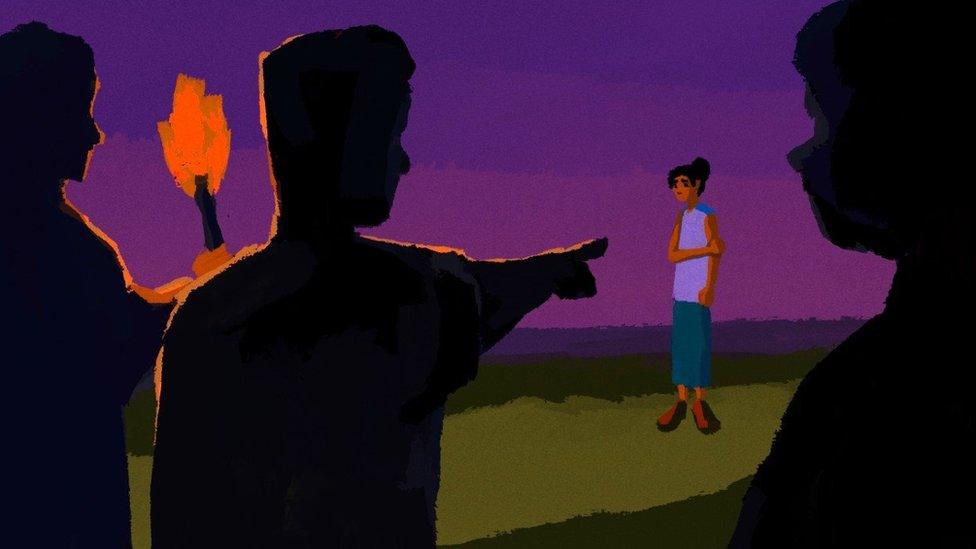
A belief of sorcery is a deeply held belief for many in Papua New Guinea
Sorcery accusation-related violence is rife in Papua New Guinea. Although there is no reliable data available to know how frequently it happens, government figures say there have been about 6,000 incidents in the past 20 years.
Some estimates suggest this figure is higher, with thousands of people - usually women and girls - accused every year. They are often subjected to brutal and sexualised violence.
"We are talking about extreme levels of violence, some of the worst I've ever seen," says Stephanie McLennan from Human Rights Watch.
"There are very vicious mob attacks, and victims are held captive, tortured, burned with iron rods, their clothes are stripped, and they are often killed."
Before they would kill silently, now women are taken into the streets and crucified.
The case of Mary Kopari made international headlines this year when she was brutally killed following the death of a two-year-old boy.
She was selling potatoes in a market when a mob captured her and burnt her alive. No arrests have been made - despite the incident being filmed and broadcast by local media.
Several other women were also targeted but managed to escape into the jungle, says Ms McLennan.
Crucified in the streets
When Monica faced her own accusation of sorcery, she was able to escape.
"The moment they accused me of killing with sorcery I was cut out. They didn't need evidence," she says. "I was banned from my father's funeral, I couldn't take part at all. I knew I no longer had a place in my family, community or tribe."
She believes her brother accused her of sorcery so he could solely inherit the house.
But not all accusations have financial motives - many stem from deep-rooted beliefs.

People accused of sorcery often have to flee from their homes, tribes and communities
"Sorcery is so ingrained in people," explains Monica.
"Even when I was a small girl there was killing, but it was accepted in the community - though the torture they went through was not as bad as now."
Monica says she has seen the level of violence rise during her lifetime.
"Maybe it was the shame so it was kept quiet, but in the 1990s it became more open, it started being all over the media," she says.
"Before they would kill silently, now women are taken into the streets and crucified. It's really inhumane."
Covid-19 crisis
The Covid-19 pandemic may have been linked to a recent increase in sorcery-related violence, according to Human Rights Watch.
This is because vaccine hesitancy and Covid denial are "huge" in the country, Ms McLennan says, meaning deaths caused by Covid may be attributed to sorcery.
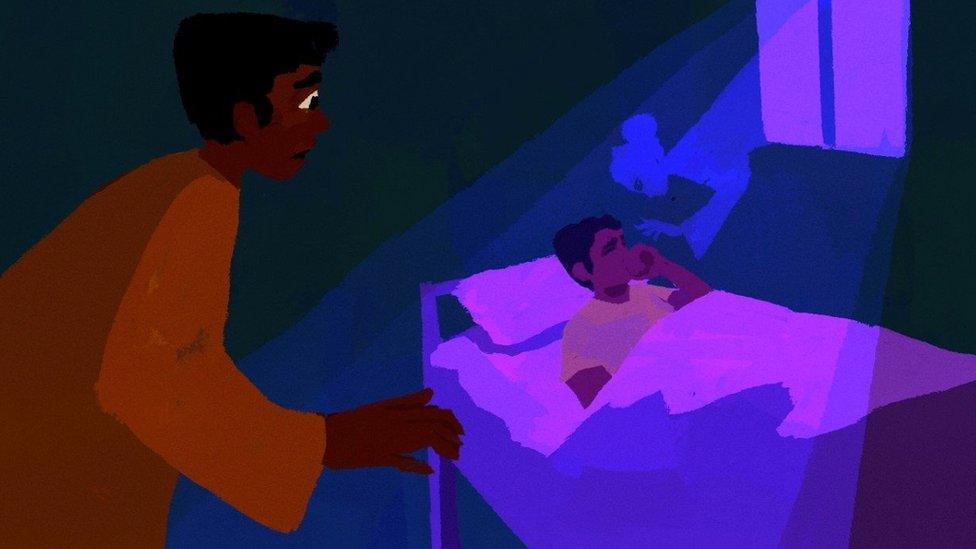
Accusations of sorcery often follow on from unexplained illnesses, so the pandemic has made SARV more prevalent
Earlier this year, a woman and her daughter were held captive and tortured, accused of practicing sorcery when her husband died of Covid-19. Local news reports say the women, aged 45 and 19, both suffered broken arms and burns from hot iron rods.
The country's government has now set up a parliamentary committee to tackle this violence, and its chair, Hon Charles Abel, warns people are using Covid "as an excuse to brand people sorcerers".
6,000incidents of SARV recorded in Papua New Guinea between 2000 and 2020...
Halfof which resulted in death
156known cases in the capital in four years
19convictions a year between 2010 and 2020
2013- the year the Sorcery Act, which allowed accusations of sorcery as a defence in trials, was repealed
Defending victims
After her experiences, Monica has put her own life at risk to protect others from witch hunts.
"I've noticed a shift in the time I've been working on this issue, but I don't see change happening soon - especially with coronavirus," she says.
While living in exile in another part of Papua New Guinea, Monica says she saw a woman get stoned to death in a public square. A man had attempted to rape her so she bit off his tongue, and he accused her of being a witch.
"She was killed in front of government officials who just watched it happen," she says. "I knew in that moment I had to do something."
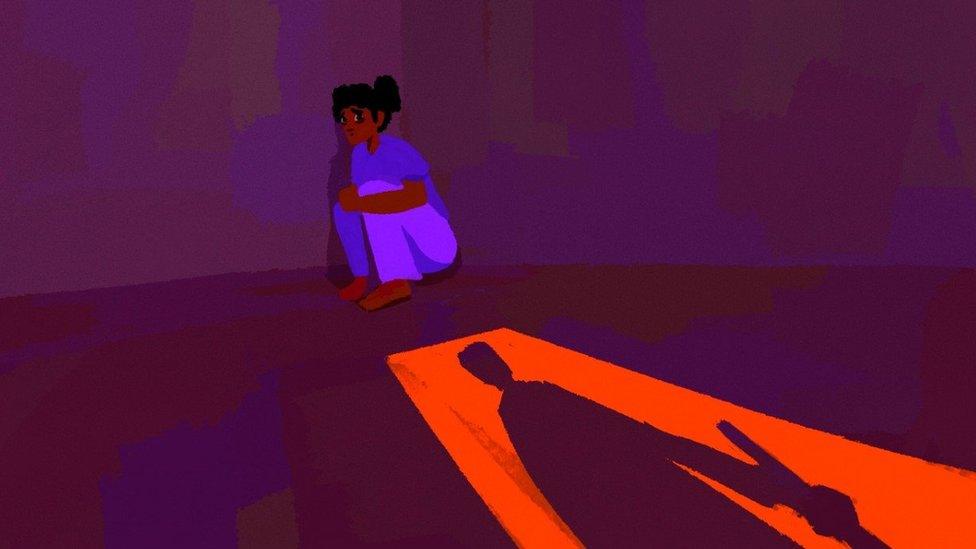
When an accusation of sorcery is made, that stigma also passes onto the children of the person accused
Monica then helped set up a campaign group to help women accused of sorcery, and estimates it has saved more than 500 people in the last 15 years.
Since she began this work, Monica's home has been burnt down. She has now fled the country altogether, living as a refugee in nearby Australia.
"It's really hard to be away from my three children," she says. "If they are safe then I will be at peace, but I am hurting."
'We need action'
Last month, a UN review urged Papua New Guinea to address human rights problems in the country, gender-based violence in particular.
Governor Allan Bird, who is deputy chairman of the parliamentary committee on gender-based violence, tells the BBC that for the first time a "significant amount" of money has been set aside in next year's budget to combat the issue.
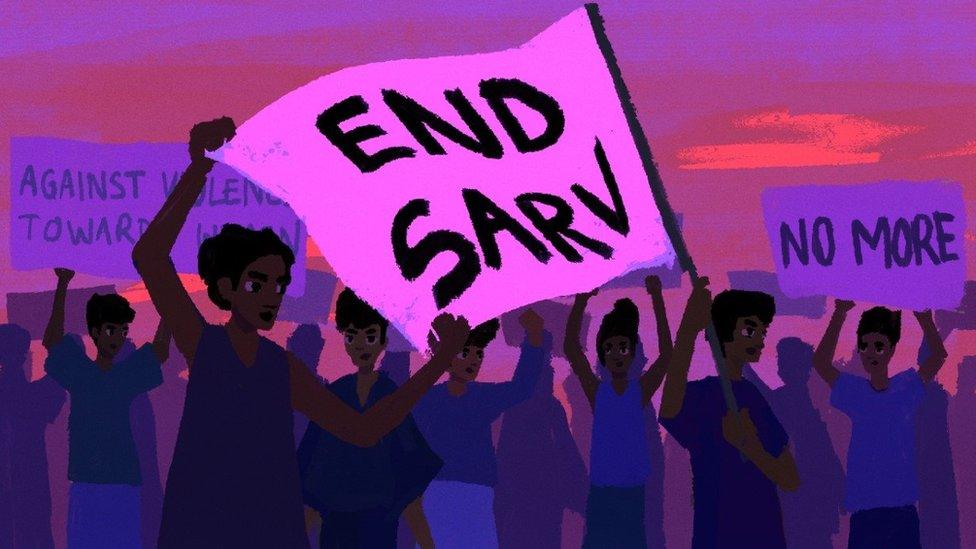
With limited funding to combat gender-based violence, it is left to civil society to provide help for SARV victims
In the meantime, it largely falls to volunteers to protect victims.
"Monica and other activists have for so long filled the gaps that the government should be providing for," says Ms McLennan. "Without them we would have so many more deaths on our hands."
Despite everything she has gone through, Monica is not giving up the fight.
"We need full-scale action to see cultural change," she says. "We have only saved a few lives - there were so many we couldn't save."


BBC 100 Women names 100 influential and inspirational women around the world every year. Follow BBC 100 Women on Instagram, external, Facebook , externaland Twitter, external. Join the conversation using #BBC100Women.
Related topics
- Published27 September 2018
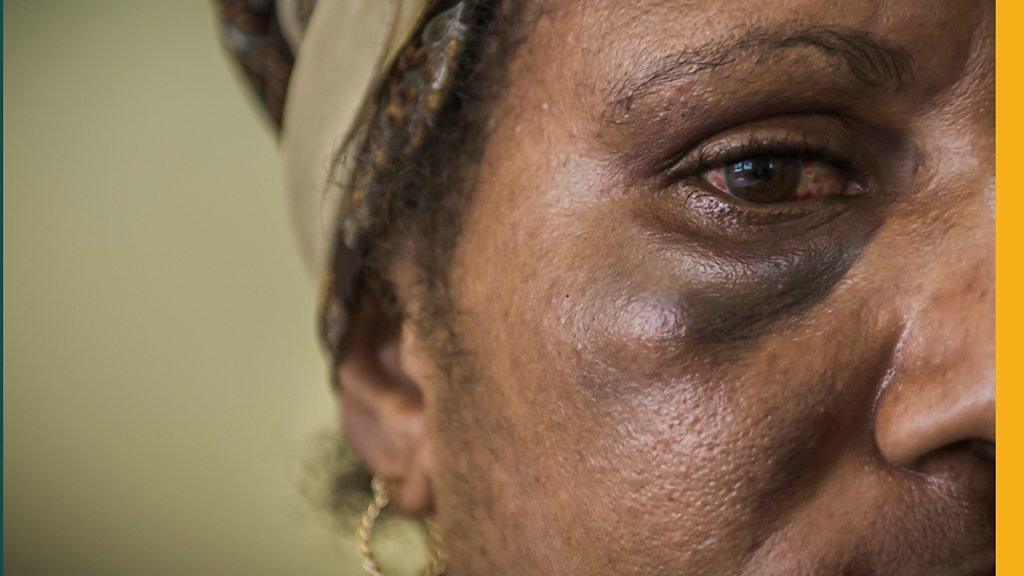
- Published20 June 2020
